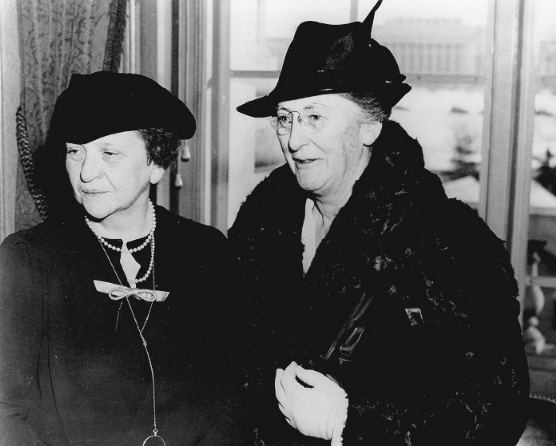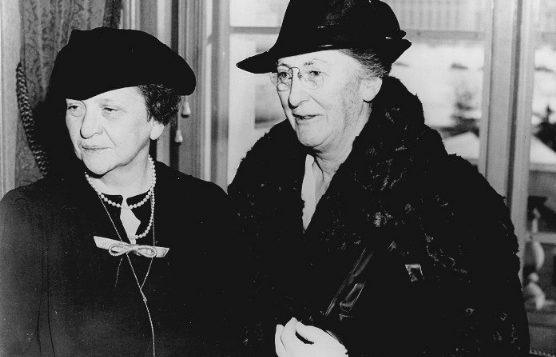WAS SHE or wasn’t she? Again, we face that vexing question regarding the lives of lesbians and gay men, in this case of Molly Dewson, who was known as “the General” in the era of the New Deal. Dewson is the subject of a book by historian Susan Ware that suddenly seems relevant, which prompted me to seek a conversation with the author of Partner and I: Molly Dewson, Feminism, and New Deal Politics (Yale 1987).
As a writer, Sapphist, feminist, and American, my moral disgust with the fallen administration of Donald Trump equaled that of Sinclair Lewis when he wrote It Can’t Happen Here (1935). But now that we have an administration that’s launching social programs reminiscent of the New Deal, it seems like a good time to return to the work of Molly Dewson and her era in American history. Dewson was the director of the Women’s

Division of the Democratic National Committee. She was among the many lesbians who followed Emily Dickinson’s advice to “Tell all the truth but tell it slant,”, i.e. encode their sexual desires. Having read Susan Ware’s book about Dewson, I was curious about her thoughts on politics then and now—what we might learn from lesbians who helped frame Franklin Delano Roosevelt’s New Deal for America during the Depression.
Dewson was a tall, athletic New England Yankee with a booming voice who wore tailored suits and sturdy low-heeled shoes and stormed the halls of Congress on behalf of women. A Wellesley graduate who was determined to change the world, she was an intelligent, assertive woman who had a 52-year relationship with a woman named Polly Porter. Their partnership was similar to those of other lesbian couples, for example, Grace Frick (We Met in Paris, by Joan Howard) and her partner, Marguerite Yourcenar. The couple was part of a circle then known as “new women” fostering social change during the New Deal. Foremost among them was Eleanor Roosevelt, who introduced some of FDR’s most sweeping social reforms in an era, like our own, that faced multiple social and political crises.
Cassandra Langer is the author of Romaine Brooks: A Life (Wisconsin).







